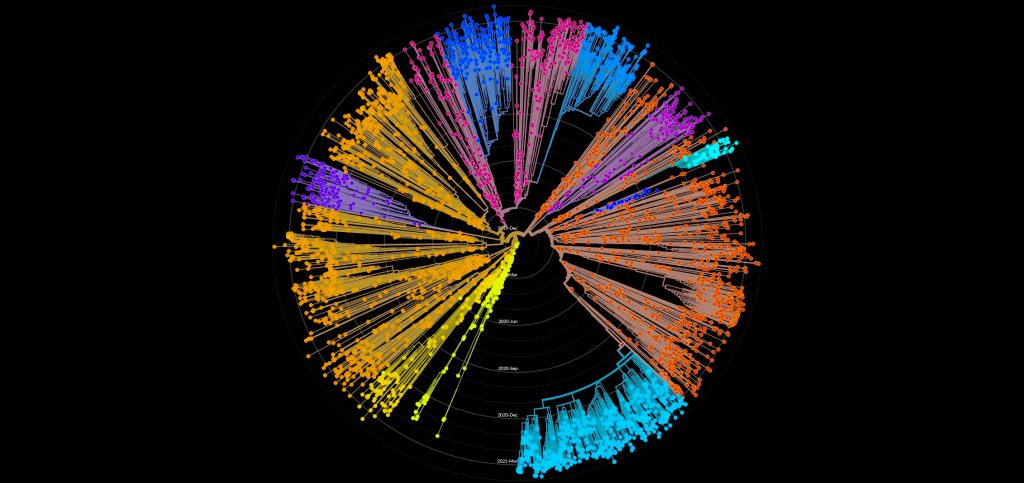Insight into the origins of life, in interaction with the environment, is one of the most important scientific developments of the last 200 years. Next step is the prediction of evolutionary processes. Evolutionary biology will play an important role in solving some of the major challenges we face today. The development of bacterial resistance, resistance to pesticides, outbreaks of new diseases, and the adaptation of species to urbanisation and climate change. It will also become easier to promote biodiversity.

Researchers are working on two conditions to predict evolution.
1. Researchers need to understand exactly which processes take place during evolution, at different levels of hierarchy and scale. This means that evolution of a species depends on other species in the same food chain and the same ecosystem. But also from (bio)molecules to cells, from organisms to ecosystems to the entire biosphere of our planet. The real breakthrough will be predicting the evolution of current species that will adapt to their changing environment in the coming years. Do you want to join us?
2. Researchers are also mapping out the changes we expect to see on our planet. If we have a good understanding of changes in climate, landscape and oceans, it is possible to predict what effects this will have on the evolution of animals and plants on Earth.
Knowledge network chairs

Bregje Wertheim
Member Steering Committee
University of Groningen

Bregje Wertheim
Member Steering Committee
University of Groningen
Networks:
Fields of interest:
I am fascinated by the genomic basis of evolution: how the genome shapes and affects the ability of organisms to adapt. It is only since a decade that technology allowed us to start quantifying genomic variation within and among species. In my research, I have been employing state-of-the-art technologies and analyses to investigate the true complexity of evolutionary processes and answer long-standing questions in evolution, mapping how genomes change during evolution and how these changes are manifested in gene networks.

Liedewij Laan
Member Steering Committee
TU Delft

Liedewij Laan
Member Steering Committee
TU Delft
Networks:
Fields of interest:
As pioneers of the emerging field of evolutionary cell biophysics, we aim to understand how the building blocks of a cell constrain and facilitate evolution of cellular functions. The function we focus on is symmetry breaking in budding yeast. We do experimental evolution, quantitative cell biology and modeling in live cells in combination with minimal in vitro systems to understand the molecular mechanisms of adaptive mutations and to predict fitness, both with bottom-up (biophysics) and top-down (statistical) approaches.
Join this network group
The format is as follows: two speakers will give a 15-20 minutes (online) lecture about a specific topic. After the lectures there will be 45 minutes for questions/discussions or for example to work on a small assignment.
This subgroup organises a series of workshops for the Dutch evolution community. The goal of this workshop series is to teach each other techniques and “languages” used in different sub-fields of evolution, to, for example, facilitate future collaborations.
It’s good to know that these are educational talks rather than seminars showing newest and innovative results.
PS: We very much appreciate suggestions for topics/speakers
When: Third Tuesday of the Month at 16:00 CET.
Where: on Zoom
Who: For everyone who feels part of the Dutch Evolution community and who wants to learn! (PhDs / Post-Docs / Staff)
How: please register here for the sessions or if you would like to be added to the mailing list*. One day before the workshop, you will receive an email with a Zoom link and password.
Contact: Bregje Wertheim or Liedewij Laan.
* If you register for the free membership of the Origins Center scientific community, you automatically receive mails from the knowledge networks you have selected in the registration form.
Program
Date in spring 2022, to be announced
In-person workshop: The why, what and how of predicting evolution
Location: to be announced
10:00 -10:15 coffee
10:15 Welcome Liedewij Laan
10:20-11:00 “The why, what and how of predicting evolution across biology: from disease to biotechnology to biodiversity, or…how to write a review with 36 authors” by Meike Wortel
11:00-13:00 “Birds and boars: evolutionary tales. How does a difference in (epi) genetic and phenotypic variation affect evolutionary history?” Workshop by Mirte Bosse and Kees van Oers
13:00-14:30 Lunch (included)
14:30-16:30 “Predicting network evolution”, what can we learn from Alpha fold? Workshop by Berend Snel, Sarah Mehrem and Liedewij Laan
16:30 Drinks
18:00 Dinner (optional, on own budget)



